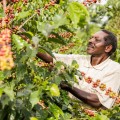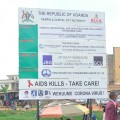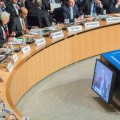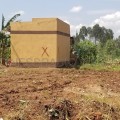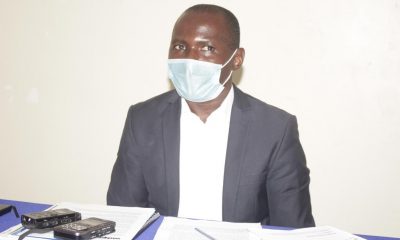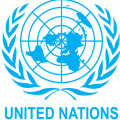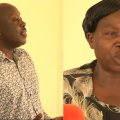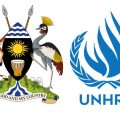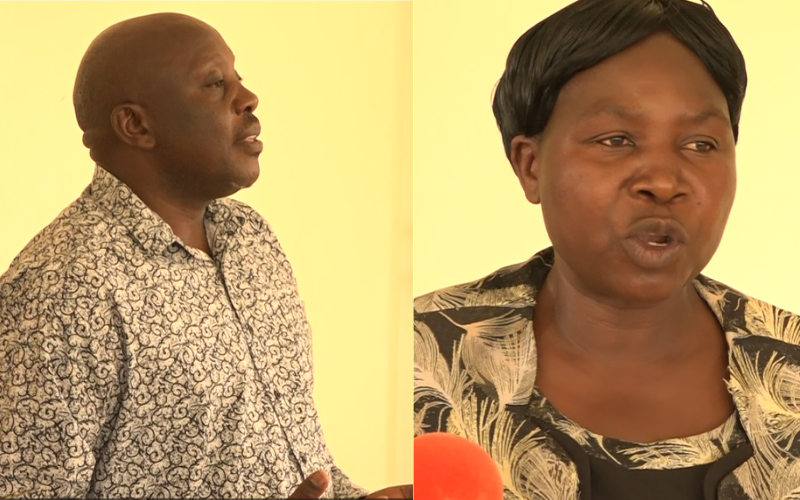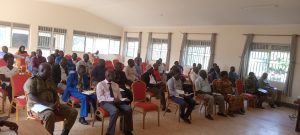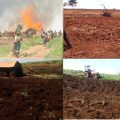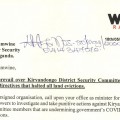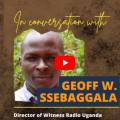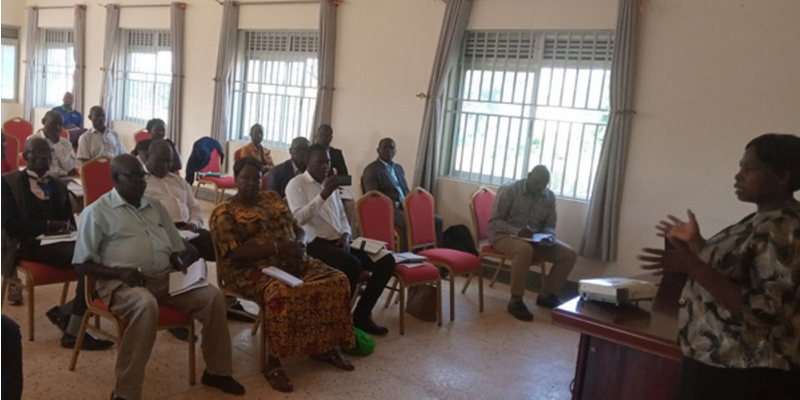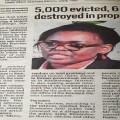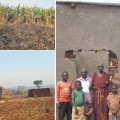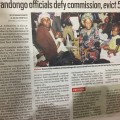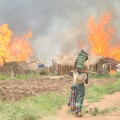By witnessradio.org Team
As the World Bank’s 20th Annual Land and Poverty Conference gets underway, the Oakland Institute is urging the World Bank to immediately put an end to the bank’s attack on land rights orchestrated through enabling the Business of Agriculture (EBA) project.
The EBA project was launched in 2013 to push governments to adopt measures and policy reforms favorable to agri-business. Under this program, legal barriers for agribusinesses are not only identified and it also prescribes reforms to remove them.
Under the auspicious, of the so-called land indicator project of 2017, the Bank is now asking governments to ease access to land for agribusiness and ranks countries on their “laws and regulations that impact access to land markets for producers and agribusinesses.” The scores countries obtain are intended to do two things: condition aid and investment money.
In Oakland’s detailed latest report, The Highest Bidder Takes It All. Under the Bank’s Scheme to Privatize the Commons, the Bank claims that low-income countries do not manage land effectively and thus recommends the privatization of land and its sale to private interests as a means to achieve economic development. Consequently, the EBA pressures governments to formalize private property rights; ease the sale of land for commercial use; systematize the sale of public land by auction to the highest bidder; and improve procedures for the expropriation of land.
While the Bank claims that such policy changes will bring more freedom and equity to land access, Oakland’s report clearly demonstrates that the land indicator instead represents an unprecedented push to privatize land and facilitate private interests’ access to the commons, to the detriment of billions around the world.
Perhaps most shocking is the EBA’s prescription that developing country governments, particularly in Africa, transfer public lands with ‘potential economic value’ to private, commercial use so that this land can be put to its supposed ‘best use.’ This ignores the fact that over 3.1 billion people – half of humanity – relies on land for their livelihoods, the majority in developing countries. Communally managed resources such as farmland, water, forests, and savannas are essential to the livelihoods of millions of family farmers, pastoralists, and Indigenous Peoples and are generally also valued as ancestral assets with deep social and cultural significance.
Rather than providing solutions to poverty and promoting shared prosperity, as per the Bank’s mission, the recommendations put forth via the land indicator clearly prioritize the interests and agendas of the EBA’s main donors—the US, the UK and the Bill & Melinda Gates Foundation- and corporate advisors over the well-being of smallholder farmers, pastoralists, and Indigenous Peoples.
According to Oakland, previous Land and Poverty Conferences have focused on the need for evidence-based approaches to land governance. However, the EBA’s land indicator runs counter to prevailing research and evidence. For instance, a comprehensive study by the International Assessment of Agricultural Knowledge, Science and Technology for Development (IAASTD) involving over 400 scientists and cosponsored by the World Bank and others, widely discredited the supposed benefits of capital intensive, industrial agriculture.
The report further urged a shift towards agro -ecological practices that are less dependent on capital and external inputs. The World Bank’s own research staff has debunked the economic efficiency argument that is used to favor the privatization of land and expansion of land markets. The study states that the creation of land markets ultimately leads to land concentration for industrialized agriculture and monocultures in large mechanized land holdings, which are less productive than family farms.
“It is time that the Bank comes clean about its true agenda and quits pretending that it is working in service of poverty alleviation. The EBA and its land indicator do nothing to alleviate poverty. It encourages the expansion of large-scale farming, which results in dispossession and loss of livelihoods for the rural poor, while failing to bring promised economic development and food security. It leads to massive environmental degradation and loss of biodiversity while worsening the climate crisis through deforestation and industrial agriculture,” said Oakland in its statement.
By making land a marketable commodity that must be offered to the highest bidder, Oakland asserts, that the land indicator will shift land from being an essential source of livelihoods and the basis of resilient farming and ecological balance, to an increasingly speculated upon financial asset that will expand corporate agriculture.
Instead of assisting governments in developing countries to design food and agricultural policies that put family farmers, pastoralists, and Indigenous Peoples at the center to address the major challenges of hunger, environmental degradation, and climate change, the World Bank has launched an unprecedented attack on their land rights and their future.
Since 2014, the multi-continental, 280-organization strong Our Land Our Business campaign has demanded an end to the EBA program because of its bias towards industrial agriculture and agribusiness corporations. Given the serious threat that the new land indicator poses, it is time to terminate this harmful initiative now.

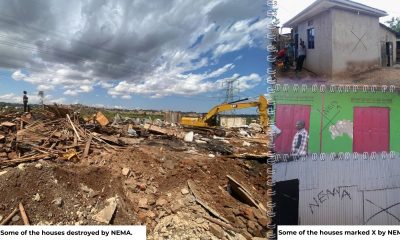
 MEDIA FOR CHANGE NETWORK4 days ago
MEDIA FOR CHANGE NETWORK4 days ago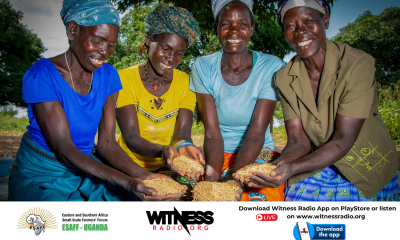
 FARM NEWS2 weeks ago
FARM NEWS2 weeks ago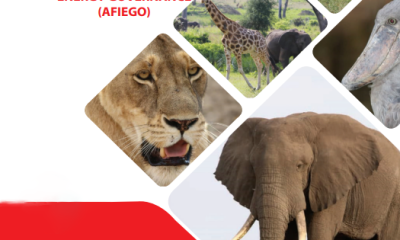
 MEDIA FOR CHANGE NETWORK2 days ago
MEDIA FOR CHANGE NETWORK2 days ago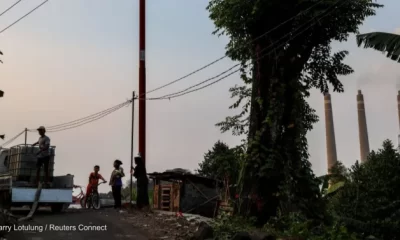
 NGO WORK1 week ago
NGO WORK1 week ago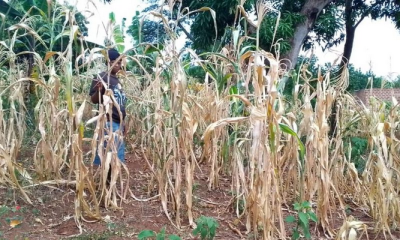
 FARM NEWS5 days ago
FARM NEWS5 days ago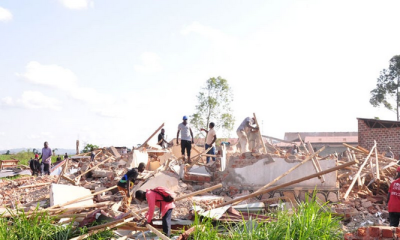
 MEDIA FOR CHANGE NETWORK5 days ago
MEDIA FOR CHANGE NETWORK5 days ago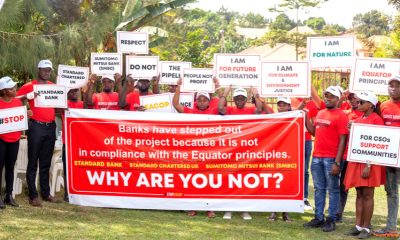
 MEDIA FOR CHANGE NETWORK3 days ago
MEDIA FOR CHANGE NETWORK3 days ago
